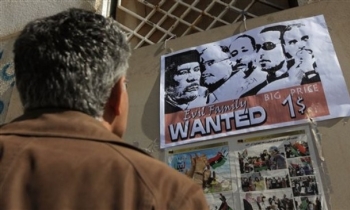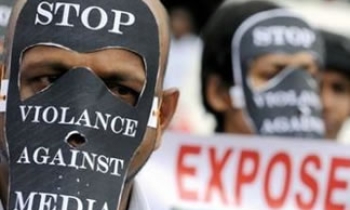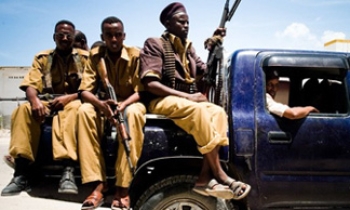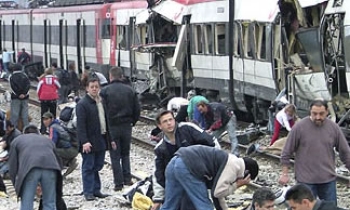NEW YORK, May 14 (Reuters) - A U.S. soldier being tried in absentia in Rome for killing an Italian intelligence agent in Iraq said on Monday that he did nothing wrong and blamed the death on an Italian reporter who was rescued by the agent.
Washington has refused to hand over Mario Lozano, from the U.S. National Guard in New York, so he is on trial in absentia for killing Nicola Calipari as the intelligence agent escorted a newly freed Italian hostage out of the country in 2005.
Lozano was a gunner at a checkpoint on the road to Baghdad airport. He said he opened fire on the car carrying Calipari and the freed hostage, journalist Giuliana Sgrena, after its driver ignored warning shots and refused to stop.
Lozano said he blames Sgrena for the intelligence agent's death because she put herself in a situation that allowed her to be targeted by kidnappers. She was abducted as she conducted interviews outside Baghdad University and held for a month.
"Because of her I caused another family grief. It's her fault, I didn't set out to hurt this man; I was just doing my job," Lozano, who had been in Iraq for around six months at the time, told Reuters in an interview.
Rome prosecutors are also seeking to convict Lozano for the attempted murder of Sgrena, a journalist for leftist newspaper Il Manifesto, and another Italian intelligence agent who was driving the car.
"It is scary because now I can't leave my country," Lozano said during the interview in the Manhattan office of his U.S. lawyer, Ed Hayes. "I feel like a prisoner in my own country, a prisoner of war practically."
The trial of the the 37-year-old father of two teen-age daughters, which began on April 17, resumed briefly on Monday but was delayed until July 10 for procedural reasons. Technical issues have so far prevented the start of arguments.
A RECKLESS SOLDIER?
The case has strained ties between Rome and Washington. The U.S. Army is defending Lozano in the Rome court. Although Rome agreed the killing was an accident, it has criticized the U.S. military for placing inexperienced troops at a poorly set-up roadblock.
Lozano, who continues to work in the New York national guard, was critical of Sgrena. Lozano accused her of "trying to set me up to be a reckless soldier and I'm not. I never, ever hurt anybody in Iraq that didn't deserve it."
Lozano said 20 or 30 cars had passed through the checkpoint set up to boost security for U.S. Ambassador John Negroponte.
"All of a sudden this car didn't want to stop. I put the light on him, gave him a warning shot and I just don't understand why the car didn't stop," he said. "I had no choice but to take action."
Soon after her release, Sgrena suggested she and the Italian agents had been targeted because the United States opposes Italy's practice of negotiating with hostage takers.
Lozano said the car carrying the Italians was "was well, well inside the kill zone. The kill zone is 100 meters, it was well in there, it was less than 30 meters (away)." He filmed the scene moments after the shooting and gave the tape to an Italian television channel earlier this month.
"There's been a lot of incidents over there where soldiers have done things and then they get accused and there's no proof, so I wanted to cover my rear by doing that," he said when asked why he made the video.
"It was something that any soldier or any human would have done in my position, when it comes to survival," Lozano said. "Nobody wants to die, I surely didn't want to die.









